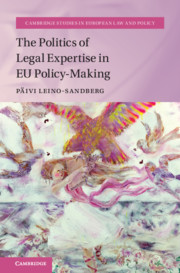This article describes the role of legal advice and legal advisers in the policy-making process toward the 2003 invasion of Iraq, on the basis of the report of the Davids Committee in the Netherlands and the documents declassified in the course of the UK's Chilcot Inquiry. The controversial nature and seemingly weak legal basis for the 2003 invasion of Iraq prompted much public and academic discussion, even leading to the leaking of otherwise confidential legal memoranda from government lawyers to the media. Unprecedented and (semi)public inquiries were carried out into the policy-making processes and motives for resorting to the use of armed force, including the role of legal advice and legal advisers. In the Netherlands, legal advisers were at a disadvantage because of the hierarchical structure in which they are placed, and because the basic policy was set at a very early stage. The legal advice rendered in the United Kingdom was given far more consideration and prominence. Yet, when advice and policy started to diverge, the formal structure in which legal advice had to be requested from the Attorney General became subject to manipulation as to timing and, perhaps, substance. This description and analysis reveal common and familiar themes regarding the role, responsibilities, and perceptions of legal advice in foreign policy.


